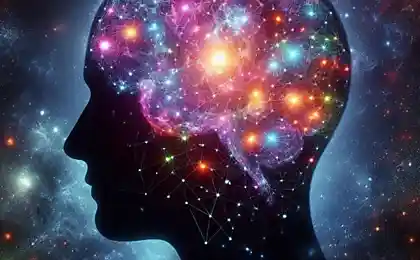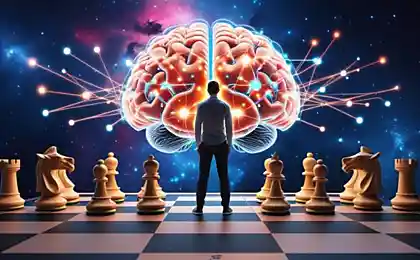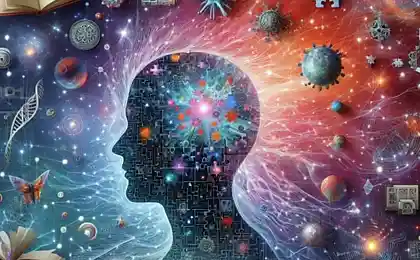469
Double standards and another 7 traps in which enters Your mind
In the science of the mind there is the concept of "cognitive distortion" — repeated error in thinking that all men have. Some of these errors are not harmful ( and can even say that useful), but many lead to inaccurate judgments and to ensure that we don't think rationally.
1. We argue to win, not to get to the truth
Know everything attributed to Socrates the phrase "in a dispute born truth". But the idea of a dispute arose at all: scientists Hugo Mercier and Dan Sperber put forward the theory (called the argumentation theory of mind), in the course of development of human society, people have learned to argue and reason, to gain power over each other. Modern humans also depend on this: we continue to argue, even when all the facts are against us — because it is a tool of manipulation.
Mercier and Sperber believe that the ability to reason, to ask questions and offer answers was not born in order to find the truth. We learned to argue, to convince others and to be careful when others try to convince us. The next time will have to Google confirmation of his words in the dispute and didn't find anything — think about it, maybe you're just wrong and don't want to admit it. Just in ancient times to lose in the dispute meant lowering their chances of survival, so our brain works.

2. We don't understand probability
The human brain has great difficulty in assessing the probability in everyday situations. A classic example: we are not afraid to get in the car, but many of us are afraid of planes. At the same time almost all know that the chance of dying in a car accident is much higher than to break on the plane, but our brain does not agree with this. Although statistically the odds of dying in car 1 to 84, and the plane — 1 to 5,000 or 1 to 20 000. That's called denial probability, a cognitive error that often leads to the fact that we overestimate the risk of harmless stuff and not enough too afraid of really dangerous. In addition, there is consciousness often your emotions: it is believed that the more emotion associated with an unlikely event, the more likely it seems.
3. We have double standards towards other people
In social psychology there is the concept of "fundamental error of attribution". Sounds complicated, but actually it means a simple thing: we tend to condemn others and not to delve into the circumstances and to justify himself. Mistakes of others, we explain their personal problems and characteristics, and their behavior and mistakes are justified by external circumstances. Let's say your colleague is very late for work, and even showed up drunk — it's terrible, he's an uncontrollable drunk! But if you were late and showed up drunk — well, you have a hard time in your life, and you needed the distraction.
This sometimes leads to the fact that we believe that all have the same circumstances, and therefore tend to judge others. So, for example, the phenomenon of the fat of shaming: people tend to judge overweight people. For those who have never had problems with overweight, it seems that the circumstances are the same and people are just too lazy to live a healthy lifestyle; they do not take into account education, metabolism, amount of free time, the possibility of personal choice or other factors. To think that all the same circumstances is madness, but doing it all.
4. We no longer trust the people inside our group
A common idea in sociology: we divide all people into groups and most of all love those who are with us in the same group, say, work colleagues or friends or even people with the same skin color. This is partly due to the hormone oxytocin, the "love molecule". In the brain it helps us to communicate with people inside our group. But oxytocin, unfortunately, running in the opposite direction: all people outside the group we are afraid, treat them with suspicion and even despised. This is called "ingroup favoritism" — we overestimate the capabilities and value of our group at the expense of people whom we know worse. This social phenomenon appeared in ancient times, when mankind was divided into tribes.
5. We are happy to follow the crowd
As shown by the famous experiments of Solomon Asch, every person has a tendency to conformism. Ash showed people a picture with four lines and asked which of them coincides in length with the main line.

We all see that this line C. Asch placed people front of neighbors who kept calling the wrong line And — and a third gave a wrong version, imposed by the majority.
People tend to believe in things with high probability, if you already believe in it other people. Hence, there are social norms and behaviours that apply within the group. The tendency to agree with the majority — that's why you can't trust polls, their results affect the way people think, which then questioning.
6. We take all the numbers and values in relation to others
This so-called "anchor effect" — any new information (primarily numbers), we compare with the existing, and most of all we are influenced by information we first heard. For example, a person comes to employment and discusses possible salary with the employer: the one who will call the first number, will set the tone for the entire conversation. In the minds of both interlocutors have a framework which will be start from first digit — any offer a response in their heads to compare with it.
Marketers love to use the effect of binding: for example, when we come into a clothing store, we compare the difference in price between things — but not the price by itself. Therefore, some of the restaurants include in your menu very expensive meals to cheaper looked beside them attractive and reasonable. Even when we are offered three options to choose from, we usually choose the middle — not too cheap and not too expensive; that's why in fast food usually has small, medium and large size drink.
7. We see coincidences and the frequency where they are not
The famous phenomenon of Baader — Meinhof: sometimes we suddenly notice things that you previously did not notice (especially if they started to be something), and mistakenly believe that these things became more.
A classic example: a person buys a red car and suddenly starts to see in the street a red car. Or the person comes up with some important figure — and he suddenly begins to seem that this number appears everywhere.
The problem is that most people just don't understand that this is a mistake of thinking — and believe that things do happen with greater frequency that may greatly confuse them. So we see coincidences where there are none, our brain starts to catch non-existent algorithms and repetition of the surrounding reality.
8. Our brain believes that we in the future other people
Studies show that when we think about ourselves in the future, the brain activates those parts which are responsible for how we think about other people. In other words, if you are asked to imagine themselves in 10 years, your brain imagines some obscure stranger. This leads to what is called hyperbolic discounting (Yes, another cumbersome phrase): we hardly think about the benefits for themselves in the future and want to benefit as soon as possible, even smaller.
Let's say you'd rather eat something harmful to get an instant fun instead of thinking about your health in the future.
Consciousness lives in the present moment, so we're saving all the bad for later. This phenomenon is particularly concerned with doctors (for obvious reasons) and economists (we do not know how to spend money wisely and to save it for later).
One study associated with food, a good illustration of this error in thinking when people expect that they will eat during the week, 74% choose fruit. And when choosing what to eat right now, 70% choose chocolate.published
P. S. And remember, just changing your mind — together we change the world! ©
Join us in Facebook , Vkontakte, Odnoklassniki
Source: vk.com/true.journal?w=wall-41226912_70275
1. We argue to win, not to get to the truth
Know everything attributed to Socrates the phrase "in a dispute born truth". But the idea of a dispute arose at all: scientists Hugo Mercier and Dan Sperber put forward the theory (called the argumentation theory of mind), in the course of development of human society, people have learned to argue and reason, to gain power over each other. Modern humans also depend on this: we continue to argue, even when all the facts are against us — because it is a tool of manipulation.
Mercier and Sperber believe that the ability to reason, to ask questions and offer answers was not born in order to find the truth. We learned to argue, to convince others and to be careful when others try to convince us. The next time will have to Google confirmation of his words in the dispute and didn't find anything — think about it, maybe you're just wrong and don't want to admit it. Just in ancient times to lose in the dispute meant lowering their chances of survival, so our brain works.

2. We don't understand probability
The human brain has great difficulty in assessing the probability in everyday situations. A classic example: we are not afraid to get in the car, but many of us are afraid of planes. At the same time almost all know that the chance of dying in a car accident is much higher than to break on the plane, but our brain does not agree with this. Although statistically the odds of dying in car 1 to 84, and the plane — 1 to 5,000 or 1 to 20 000. That's called denial probability, a cognitive error that often leads to the fact that we overestimate the risk of harmless stuff and not enough too afraid of really dangerous. In addition, there is consciousness often your emotions: it is believed that the more emotion associated with an unlikely event, the more likely it seems.
3. We have double standards towards other people
In social psychology there is the concept of "fundamental error of attribution". Sounds complicated, but actually it means a simple thing: we tend to condemn others and not to delve into the circumstances and to justify himself. Mistakes of others, we explain their personal problems and characteristics, and their behavior and mistakes are justified by external circumstances. Let's say your colleague is very late for work, and even showed up drunk — it's terrible, he's an uncontrollable drunk! But if you were late and showed up drunk — well, you have a hard time in your life, and you needed the distraction.
This sometimes leads to the fact that we believe that all have the same circumstances, and therefore tend to judge others. So, for example, the phenomenon of the fat of shaming: people tend to judge overweight people. For those who have never had problems with overweight, it seems that the circumstances are the same and people are just too lazy to live a healthy lifestyle; they do not take into account education, metabolism, amount of free time, the possibility of personal choice or other factors. To think that all the same circumstances is madness, but doing it all.
4. We no longer trust the people inside our group
A common idea in sociology: we divide all people into groups and most of all love those who are with us in the same group, say, work colleagues or friends or even people with the same skin color. This is partly due to the hormone oxytocin, the "love molecule". In the brain it helps us to communicate with people inside our group. But oxytocin, unfortunately, running in the opposite direction: all people outside the group we are afraid, treat them with suspicion and even despised. This is called "ingroup favoritism" — we overestimate the capabilities and value of our group at the expense of people whom we know worse. This social phenomenon appeared in ancient times, when mankind was divided into tribes.
5. We are happy to follow the crowd
As shown by the famous experiments of Solomon Asch, every person has a tendency to conformism. Ash showed people a picture with four lines and asked which of them coincides in length with the main line.

We all see that this line C. Asch placed people front of neighbors who kept calling the wrong line And — and a third gave a wrong version, imposed by the majority.
People tend to believe in things with high probability, if you already believe in it other people. Hence, there are social norms and behaviours that apply within the group. The tendency to agree with the majority — that's why you can't trust polls, their results affect the way people think, which then questioning.
6. We take all the numbers and values in relation to others
This so-called "anchor effect" — any new information (primarily numbers), we compare with the existing, and most of all we are influenced by information we first heard. For example, a person comes to employment and discusses possible salary with the employer: the one who will call the first number, will set the tone for the entire conversation. In the minds of both interlocutors have a framework which will be start from first digit — any offer a response in their heads to compare with it.
Marketers love to use the effect of binding: for example, when we come into a clothing store, we compare the difference in price between things — but not the price by itself. Therefore, some of the restaurants include in your menu very expensive meals to cheaper looked beside them attractive and reasonable. Even when we are offered three options to choose from, we usually choose the middle — not too cheap and not too expensive; that's why in fast food usually has small, medium and large size drink.
7. We see coincidences and the frequency where they are not
The famous phenomenon of Baader — Meinhof: sometimes we suddenly notice things that you previously did not notice (especially if they started to be something), and mistakenly believe that these things became more.
A classic example: a person buys a red car and suddenly starts to see in the street a red car. Or the person comes up with some important figure — and he suddenly begins to seem that this number appears everywhere.
The problem is that most people just don't understand that this is a mistake of thinking — and believe that things do happen with greater frequency that may greatly confuse them. So we see coincidences where there are none, our brain starts to catch non-existent algorithms and repetition of the surrounding reality.
8. Our brain believes that we in the future other people
Studies show that when we think about ourselves in the future, the brain activates those parts which are responsible for how we think about other people. In other words, if you are asked to imagine themselves in 10 years, your brain imagines some obscure stranger. This leads to what is called hyperbolic discounting (Yes, another cumbersome phrase): we hardly think about the benefits for themselves in the future and want to benefit as soon as possible, even smaller.
Let's say you'd rather eat something harmful to get an instant fun instead of thinking about your health in the future.
Consciousness lives in the present moment, so we're saving all the bad for later. This phenomenon is particularly concerned with doctors (for obvious reasons) and economists (we do not know how to spend money wisely and to save it for later).
One study associated with food, a good illustration of this error in thinking when people expect that they will eat during the week, 74% choose fruit. And when choosing what to eat right now, 70% choose chocolate.published
P. S. And remember, just changing your mind — together we change the world! ©
Join us in Facebook , Vkontakte, Odnoklassniki
Source: vk.com/true.journal?w=wall-41226912_70275
Before getting, you need to give?
Eugene Botkin: "I gave the king my word to stay with him as long as he lives!"























